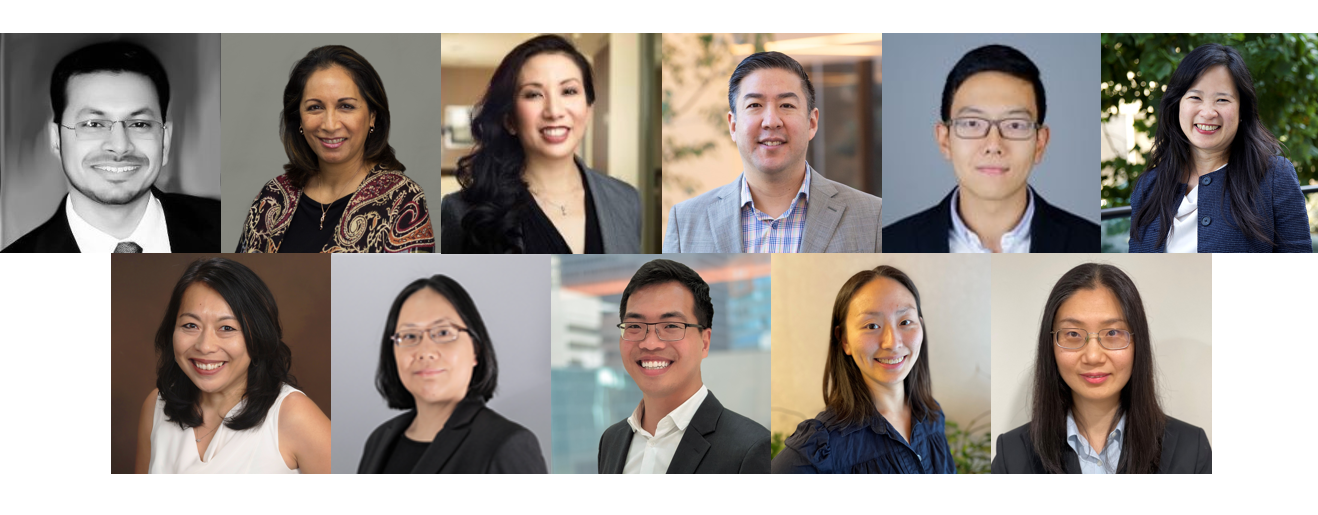Celebrating Asian and Pacific Islander heritage through discussion
As a first generation, born-in-the-U.S. Chinese-American, it is with mixed emotions that I celebrate Asian American Pacific Islander (AAPI) Heritage Month.
In many ways, I am glad that there is a designated month to celebrate the many achievements and contributions of Asians and Pacific Islanders in the U.S. and Canada. The AAPI Heritage Month was first signed into law in 1990 by then U.S. President George H. W. Bush, making May of each year Asian/Pacific American Heritage Month. This was later renamed to AAPI Heritage Month in 2009. The Canadian government signed an official declaration to designate May as Asian Heritage Month in 2002.
On the other hand, I am sad and distressed that it took attacks on people of Asian and Pacific Islander ancestry for AAPI Heritage Month and AAPI societal contributions to receive greater attention. Although people of Asian and Pacific Islander descent are similar in their backgrounds and experiences, they are also highly diverse and much of this diversity is not recognized. According to the Asian Pacific Institute, the term “AAPI” includes “all people of Asian, Asian American or Pacific Islander ancestry who trace their origins to the countries, states, jurisdictions and/or the diasporic communities of these geographic regions.”[1] The United Nations notes that 48 countries comprise Asia.[2]
However, I am excited to share insight that I have gained over this year’s AAPI Heritage Month in the hopes that it inspires others to become more active in cultural moments.
As part of AECOM’s ongoing equity, diversity and inclusion programs, the company hosted a panel discussion earlier this month for AAPI employees and allies in the U.S. and Canada. We also held a “Real Talk” session in April for employees of Asian descent to openly discuss their feelings about the increase in anti-Asian hate crimes, and how they can be supported.
Below are some key discussion points from these two events.
Culture has greatly affected and continues to affect the speakers’ experiences.
People of Asian descent are often taught to assimilate, work hard, be modest and humble, and not cause trouble. Although this may have been an advantage in school, once in the workforce, many are told they are too timid, shy and not authoritative enough, which can lead to some people not being given credit for their work or being passed over in getting promoted.
Part of these cultural values, one speaker noted, is thinking of others before oneself. She attributes that value to her ability to relate with and work well with others – an important personal trait that has been recognized in her work and in her professional roles.
Challenges can be overcome.
Although feelings of belonging have been a challenge for many, several speakers encouraged their colleagues to break out of their shells and be more assertive. Speakers added that they can contribute more in one-on-one settings if stepping outside of their comfort zones in a team or group is too big of a first step. Then, eventually, they can start to work towards being more vocal in team settings.
Invisibility and lack of representation is a common challenge for many of Asian and Pacific Islander descent. In a recent survey by the nonprofit organization, Leading Asian Americans to Unite for Change, 42% of Americans surveyed could not name a well-known Asian American.[3]
It was also acknowledged that being Asian and a woman could be a double challenge, as one must simultaneously overcome the cultural and societal norms and prejudices that are affiliated with both groups.
Panelists provided several recommendations for being more visible. A couple of the panelists invoked the Golden Rule of “doing unto others as you would have them do unto you,” such as giving credit to others and reflecting on one’s own perspectives while being mindful of comments and approaches. Another reminded the participants that careers take time and are not created in a day, so a foundation in a professional setting always involves doing good work and establishing relationships with clients, teaming partners and colleagues. Then, they can become more visible in the workplace as these clients will want to work with them again and again.
Allyship is welcome.
Because Asians are often viewed as the model minority or have not been as vocal as others, some may mistakenly perceive they do not need or want support. Quite the contrary – speakers in both events emphasized the need for support and welcomed allyship. Several enforced their individuality in describing their heritage: place of birth, English as a first or second language, their upbringing, and understanding of their heritage. However, they want to be listened to and heard. Even if it makes others uncomfortable or unsure of how to respond, just making them aware builds a sense of support.
I am grateful we have opportunities to celebrate our heritage at our company. Join me in celebrating the amazing contributions of the Asian and Pacific Islander community in our industry, our cities and our culture. Lastly, I would like to thank my colleagues for participating along with me as speakers and moderators at the two events:

Starting with the top row, from left to right:
- Abunasar Azad, Software Development Manager
- Terri Choy, Chemistry Sr. Manager
- Wendy Lau, Risk Management Lead, US West
- Andrew Liu, Senior Vice President, Director of Growth, US West Transportation
- Qi Ma, Water Resources Engineer
- Amy Pang, Associate Vice President, Marketing
- Lusanna Ro, Vice President and Assistant General Counsel
- Sharon Tsay, Associate Vice President, Hydraulic Modeling Technical Lead
- Nicholas (Nico) Valenton, Transportation Engineer
- Joanne Wang, Sr. Environmental Planner
- Heather Zhao, Project Manager
[1] https://www.goodhousekeeping.com/life/a35711434/asian-american-pacific-islander-difference-aapi/
[3] https://www.nbcnews.com/news/asian-america/survey-finds-42-percent-people-u-s-can-t-name-n1267283






